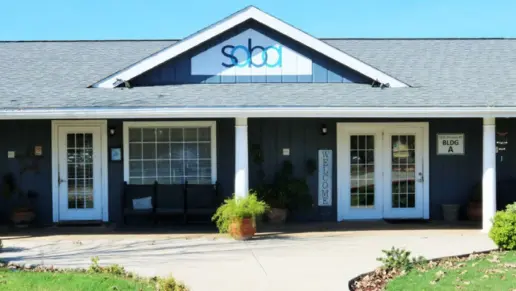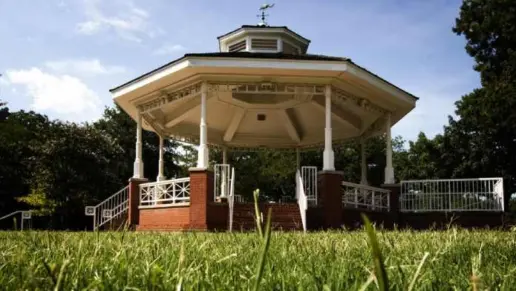It was was good in the beginning.then after a couple of weeks it got repetitive!! the nursing staff for the most are unprofessional!! Talking on the speaker phone where the other patients can here your info!! Not good!! Some therpest are unprofessional !!also when you need ...
About The Addiction Recovery Center by Texas Health
Texas Health Recovery and Wellness Center, located in Mansfield, Texas, is a substance use disorder and mental health treatment center that provides gender specific care for men and women. They are also LGBTQ friendly and provide specialty tracks for young adults.
Texas Health Recovery and Wellness Center offers detoxification services, residential treatment, partial hospitalization, and intensive outpatient treatment.
The detox program at Texas Health Recovery and Wellness Center is monitored by nurses and physicians who are experienced in addiction and detox. Each detox protocol is created on an individual basis to receive personalized treatment that supports the correct timing, duration, and intensity.
Residential treatment at Texas Health and Recovery Wellness Center provides gender specific residential treatment to support the fact that men and women have unique issues with healing when it comes to addiction. Everyone is provided 24 hour monitoring, treatment, and recovery in a supportive and therapeutic environment that draws from a multidisciplinary approach to treatment.
The adult partial hospitalization program is for individuals who do not need to stay in the hospital but still require a highly structured outpatient program. This program often serves as a bridge for those transitioning from inpatient care for substance use disorder.
The intensive outpatient program is suitable for those who no longer need residential or partial hospitalization treatment. The service provides continued support for addiction through individual therapy, group therapy, and educational classes on recovery. Medications may be managed for those who use them, and trauma support may also be offered. The goal is to continue to move toward a life of recovery and a suitable aftercare treatment plan that allows for reintegration back into society.
Group therapy involves treatment through the process of connecting in a group setting to discuss and work through mental, emotional, and physical issues. There are a number of different group therapy modalities, including support groups, experiential therapy, psychoeducation, and more.
Latest Reviews
Rehab Score
Gallery
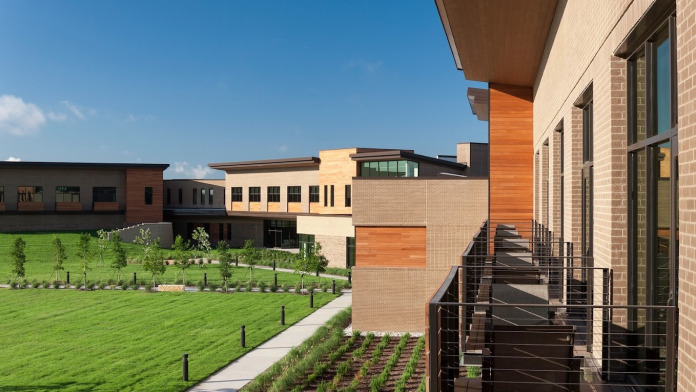
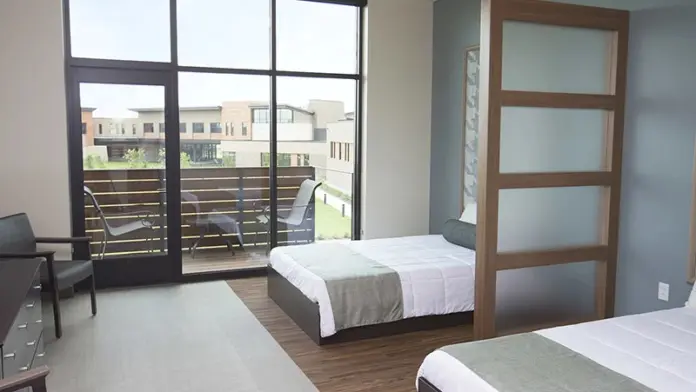
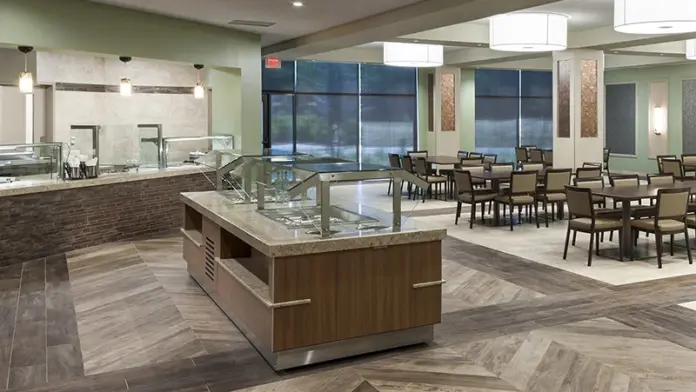
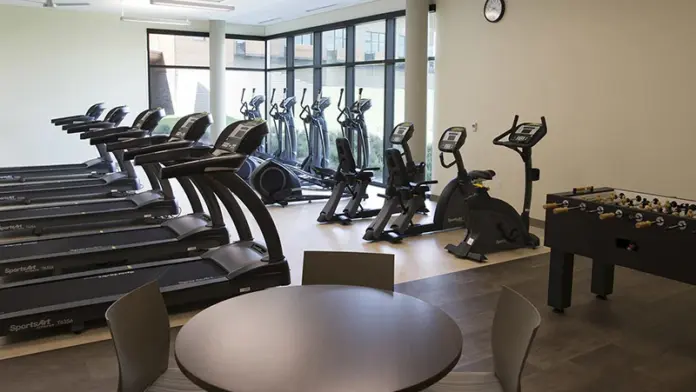
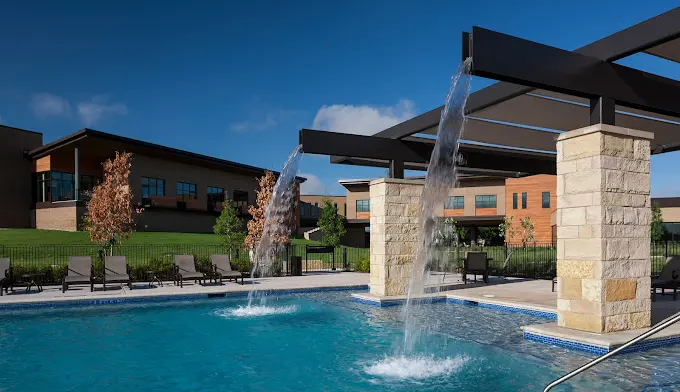
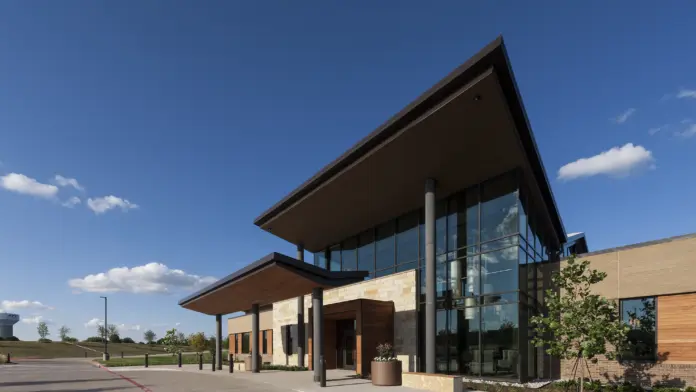
Location
Other Forms of Payment
Private insurance refers to any kind of healthcare coverage that isn't from the state or federal government. This includes individual and family plans offered by an employer or purchased from the Insurance Marketplace. Every plan will have different requirements and out of pocket costs so be sure to get the full details before you start treatment.
Self-pay involves paying for treatment out of your own pocket. You can use savings or credit, get a personal loan, or receive help from family and friends to fund your treatment. If you don't have insurance or your insurance plan doesn't cover a specific program, self-pay can help ensure you still get the care you need.
Medicare is a federal program that provides health insurance for those 65 and older. It also serves people under 65 with chronic and disabling health challenges. To use Medicare for addiction treatment you need to find a program that accepts Medicare and is in network with your plan. Out of pocket costs and preauthorization requirements vary, so always check with your provider.
Military members, veterans, and eligible dependents have access to specific insurance programs that help them get the care they need. TRICARE and VA insurance can help you access low cost or no cost addiction and mental health treatment. Programs that accept military insurance often have targeted treatment focused on the unique challenges military members, veterans, and their families face.
Medicaid is a state based program that helps lower-income individuals and families pay for healthcare. Medicaid covers addiction treatment so those enrolled can use their coverage to pay for rehab. When a program accepts Medicaid the client often pays very little or nothing out of their own pocket.
Addiction Treatments
Levels of Care
Treatments
Substance rehabs focus on helping individuals recover from substance abuse, including alcohol and drug addiction (both illegal and prescription drugs). They often include the opportunity to engage in both individual as well as group therapy.
Programs




Clinical Services
The goal of cognitive behavioral therapy (CBT) in Texas is to change thought patterns, which leads to changes in behavior. Specific techniques during CBT can include self talk, SMART goals, journaling, and positive activities.
Group therapy is any therapeutic work that happens in a group (not one-on-one). There are a number of different group therapy modalities, including support groups, experiential therapy, psycho-education, and more. Group therapy involves treatment as well as processing interaction between group members. Texas Health offers at least five hours of daily group therapy.
In individual therapy, a patient meets one-on-one with a trained psychologist or counselor. Therapy is a pivotal part of effective substance abuse treatment, as it often covers root causes of addiction, including challenges faced by the patient in their social, family, and work/school life. Texas Health offers weekly individual therapy settings, as well as weekly psychiatrist or addictionologist visits.
Therapy sessions that incorporate motivational interviewing focus on OARS: open questions, affirmation, reflections, and summarizing. This facilitates an exchange of information and an empowering of the client to decide for themselves what changes might need to be made in their lives.
Together with an experienced trauma therapist, you work on healing emotional wounds from traumatic experiences within a trauma therapy environment. Your therapist will help you process the experience of the trauma, which promotes emotional healing and improves your overall mental health.
Research clearly demonstrates that recovery is far more successful and sustainable when loved ones like family members participate in rehab and substance abuse treatment. Genetic factors may be at play when it comes to drug and alcohol addiction, as well as mental health issues. Family dynamics often play a critical role in addiction triggers, and if properly educated, family members can be a strong source of support when it comes to rehabilitation.
Life skills trainings involve all the skills a person must have in order to function successfully in the world. These include time management, career guidance, money management, and effective communication. Truly successful addiction recovery is based on the ability to not only live substance-free, but to thrive. Life skills teaches the practical necessities of functioning in society, which sets clients up for success in life, and therefore sobriety.
Amenities
-
Private Setting
-
Yoga Studio
Accreditations

The Commission on Accreditation of Rehabilitation Facilities (CARF) is a non-profit organization that specifically accredits rehab organizations. Founded in 1966, CARF's, mission is to help service providers like rehab facilities maintain high standards of care.
CARF Accreditation: Yes

State Licenses are permits issued by government agencies that allow rehab organizations to conduct business legally within a certain geographical area. Typically, the kind of program a rehab facility offers, along with its physical location, determines which licenses are required to operate legally.
State License: Texas

The Joint Commission, formerly known as JCAHO, is a nonprofit organization that accredits rehab organizations and programs. Founded in 1951, the Joint Commision's mission is to improve the quality of patient care and demonstrating the quality of patient care.
Joint Commission Accreditation: Yes
Contact Information
240 North Miller Road
Mansfield, TX 76063
